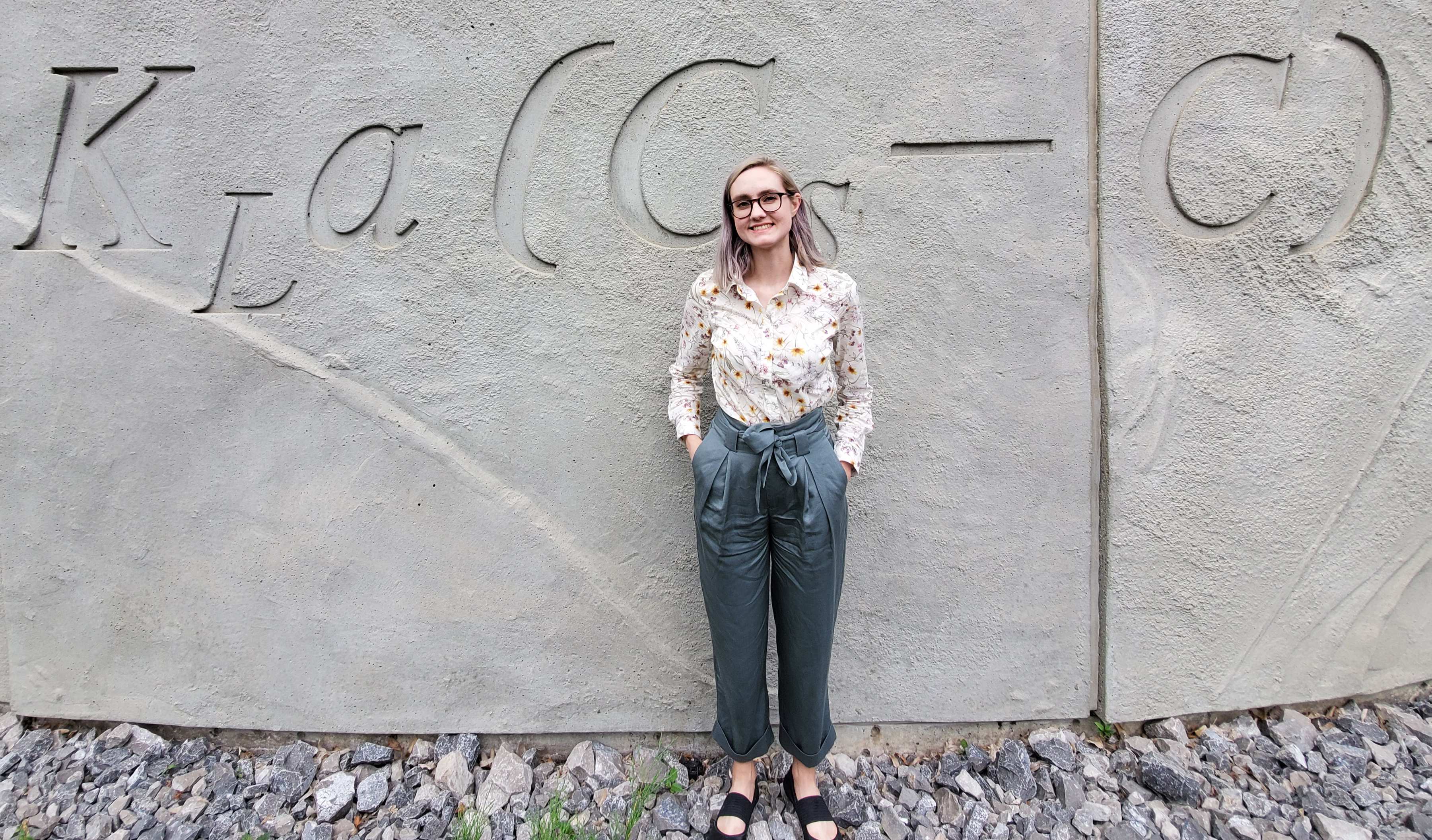
We've got your back. Engineering Student Support Centre director Peggy Jankovic leads a team dedicated to helping Engineering At Alberta students develop a deep understanding of math. The centre has a storefront location in the ETLC Atrium, located in W2-023.
(Edmonton) When engineering students are struggling with new concepts in math or physics, they have drop-in tutoring support to back them up.
A new Engineering Student Success Centre (ESSC) is providing students with drop-in tutoring services, host study sessions, and is giving students a space to develop skills, habits and, importantly, confidence.
Students often lack confidence when it comes to mathematics, says Peggy Jankovic, an abstract algebra expert who is the director and educational lead of the centre. And the first year of university is the best time to remedy that.
She says the transition to university-level math can be stressful. In engineering, for example, first-year students are not allowed to use calculators in math classes. The idea is to develop a deep understanding of the fundamentals. There are also different teaching styles for students to adapt to.
"If it was multiple choice exams (in high school), students didn't need deeper understanding. As soon as you throw them into a situation where things are a little different, or if it's a more difficult version of the problem, then they just freak out," she said.
Students gain confidence when they begin to realize they have the tools to approach a problem that they aren't sure they can solve.
"A big part of math is knowing what to do when you don't know what to do: trying to figure out what your tools are," Jankovic said.
More often than not, mathematics is seen as a subject that requires a certain degree of natural talent.
"I think that there's an over-emphasis on natural talent," Jankovic said. "And that's to the detriment of everyone."
She cites studies demonstrating that subjects perceived as requiring natural talent tend to be male-dominated, whereas those subject areas that are seen as accessible through hard work often reflect more gender equality.
"That's something I definitely want to be aware of when I'm working with students," Jankovic said. "I want to go over the top in terms of making sure that the female students are supported because even though it is getting better, there's still gender inequality in terms of representation in engineering."
Jankovic and the ESSC will provide students with specialized engineering tutoring services that closely mirror the curriculum and exam schedule of the course of study.
"Because the centre is going to be incorporated into basically everything going on with first-year engineering," she explains, "it's more likely that they'll be able to get exactly the help they need in the right context."
Jankovic added that one-on-one tutoring sessions are much more effective than studying alone, or even with friends.
"If you're able to try something, get stuck, ask for help, you'll learn much more," she said. "Just actively using the resources makes a huge difference."
The ESSC will be staffed by Jankovic along with three or four teaching assistants at any given time who will be largely dedicated to providing students with one-on-one help. "Just because that's the most valuable, and students don't get that otherwise," she said.
Jankovic looks forward to working with student engineers.
"I know they're great," she said. "They're a very motivated group of students, which makes them easy to work with because I know that they will be trying their best."
The Engineering Student Success Centre will open in September and be located in the main atrium between ECERF and the ETLC.